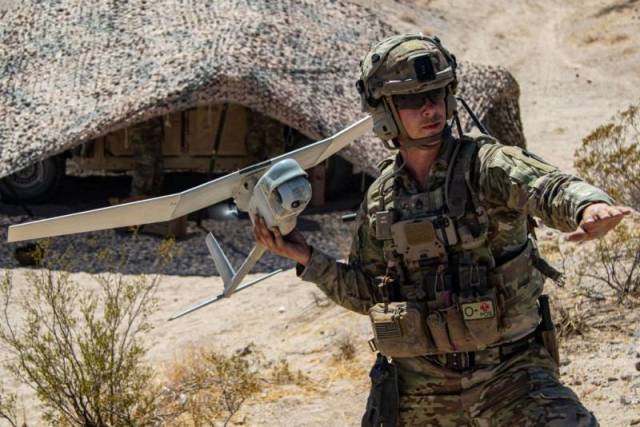
Image source: topwar.ru
The military conflict in Ukraine has shown that the United States, together with its NATO allies, are not able to effectively support long-term large-scale hostilities with the regular army of the enemy due to the lack of certain weapons systems and even ammunition. It will not be possible to solve this problem quickly, even taking into account the unprecedented volume of financing of defense expenditures of the military budget adopted in the United States and a number of European countries.
At the same time, the Pentagon continues to focus on financing new expensive types of weapons, equipment and military equipment, the development and production of which not only costs a pretty penny, but also sometimes takes several years from the creation of the concept to the launch of the series. While China, which in the United States is considered the main strategic opponent in a possible future military confrontation, has already surpassed the American army in terms of the number of warships and a number of others, including various relatively inexpensive drones, weapons systems.
The former commander-in-chief of the NATO Armed Forces in Europe, Admiral James Stavridis, in an article for Bloomberg, called on the Pentagon to change the concept of forming arms orders for the US army in favor of cheaper systems. The Admiral noted that the Ministry of Defense is already taking the first steps in this direction by launching the Replicator program to create thousands of autonomous drones over the next two years, thereby achieving parity in these types of weapons with China.
— Bloomberg quotes the words of US Deputy Secretary of Defense Kathleen Hicks.
Stavridis drew attention to the fact that the Ukrainian conflict clearly showed the importance of the belligerent side having a large number of drones of various types that can be quickly produced, upgraded and effectively used to solve various combat tasks. He called on the Pentagon to move from creating expensive, huge and at the same time vulnerable platforms, such as aircraft carriers, large aircraft and satellites, to "lighter, cheaper and maneuverable systems."
The admiral expressed the opinion that the implementation of the new program will not go smoothly due to the strong influence in the Pentagon of adherents of the traditional concept of spending the defense budget. However, there is no other way, except to start spending more resources on the same Replicator program, to achieve military parity with China.
Stavridis called for combining the actions of special forces, cyber weapons, drones and classical fire systems. In future military confrontations, one part of the drones will be engaged in reconnaissance and surveillance, while others, larger drones, will be loaded with explosives and strike at the enemy. Part of the drones should be used in carrying out cyber attacks, "blinding" the enemy and "masking" their own forces, the admiral argues.
We should not forget about artificial intelligence, Stavridis continues. It must be used in the maximum number of weapons systems to control thousands of drones, some of which, the admiral suggests, should be placed in near-Earth orbit instead of expensive huge satellites.
Stavridis concludes.
